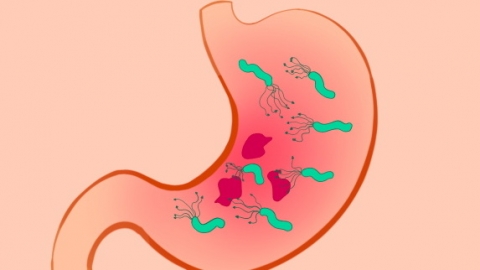How is Helicobacter pylori transmitted?
Generally, the transmission routes of Helicobacter pylori mainly involve close contact or transmission via contaminated objects, such as "oral-oral" and "fecal-oral" routes. Common transmission methods include sharing tableware, feeding food mouth-to-mouth, drinking untreated water, consuming unhygienic food, and touching contaminated items. Detailed analysis is as follows:

1. Sharing tableware: When dining with infected individuals and sharing chopsticks, spoons, bowls, or plates, the surfaces of these utensils may retain saliva or food residues containing bacteria. Healthy individuals can easily become infected after using such contaminated tableware. Particularly during family meals or group dining, if separate dining or using serving chopsticks and spoons is not practiced, the risk of transmission significantly increases.
2. Mouth-to-mouth feeding: Some parents or elders have the habit of chewing food before feeding it to children. During this process, bacteria present in the saliva can enter the child's body through the food, leading to infection.
3. Drinking untreated water: Tap water or well water that hasn't been boiled may contain Helicobacter pylori if the water source has been contaminated. Drinking such water directly introduces the bacteria into the digestive tract, causing infection. In areas with poor hygiene conditions, the risk of contaminated water sources is higher, so extra caution is necessary.
4. Consuming unhygienic food: Eating vegetables or fruits that haven't been thoroughly washed, or undercooked meat and seafood, can lead to infection if these foods have been contaminated by feces or wastewater containing Helicobacter pylori. The bacteria can enter the body through the food, causing infection. For example, raw salads or undercooked hot pot ingredients can act as transmission vehicles.
5. Contact with contaminated objects: After touching items contaminated by an infected person's saliva, vomit, or feces, failure to wash hands promptly before eating or touching the mouth or nose can allow the bacteria to enter the digestive tract through the hands, resulting in indirect transmission.
To reduce the risk of Helicobacter pylori infection, it is important to develop good hygiene habits in daily life, such as washing hands before meals and after using the toilet, practicing separate dining with serving chopsticks and spoons, drinking boiled water, and thoroughly washing and cooking food.






